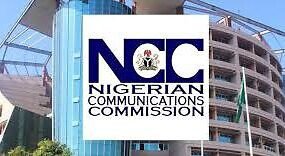On Tuesday, January 21, 2025, travellers at Abuja International Airport found themselves unexpectedly disconnected—unable to make calls or access the internet. The disruption, caused by a severed fibre optic cable, left hundreds of passengers stranded without connectivity. The damaged cable, owned by MTN Nigeria, was accidentally cut during road construction in a nearby area.
When MTN engineers arrived to fix the issue, they were met with resistance from local miscreants who demanded payment before allowing repairs to proceed. With service restoration at stake, MTN had little choice but to comply, further increasing the financial toll of the incident. Once the repairs were completed, normal operations resumed immediately.
A Worsening Crisis in Nigeria’s Telecom Sector
MTN Nigeria, the country’s largest telecom provider, operates a vast fibre network spanning 40,000km. However, maintaining this infrastructure is proving increasingly difficult. The telco records an average of 37 fibre cuts daily—translating to over 1,000 incidents every month. Its competitor, Airtel Nigeria, faces similar challenges, reporting an even higher rate of 43 fibre cuts per day and 7,742 incidents in the first half of 2024 alone.
According to Yahaya Ibrahim, MTN Nigeria’s Chief Technical Officer, the problem is worsening in 2025. “Four weeks ago, at Park View Estate, we had people throwing fire into the manholes (where fibre cables were laid). We lost traffic,” he told the media. Earlier, in February 2024, similar incidents in Abuja and Lagos disrupted services after road construction and bush-burning damaged thousands of fibre cables.
Road construction accounts for 60% of these disruptions, while 20% stem from vandalism, bush-burning, farming activities, and water pipeline work. The remaining 20% is due to outright cable theft. These persistent issues not only cause financial losses for telecom operators but also disrupt businesses and essential services, making internet and mobile connectivity increasingly unreliable.
Government Intervention and Future Solutions
In response to the crisis, the Nigerian government introduced an executive order in 2024, classifying telecom infrastructure as critical national assets and criminalizing their intentional destruction. However, enforcement remains absent, prompting industry stakeholders to push for immediate action.
Their approach includes public education on the importance of protecting telecom infrastructure, fostering collaboration between ministries, and working with the Nigerian Communications Commission (NCC) and the Office of the National Security Adviser (ONSA) to enforce the executive order. Implementation is expected to begin in February 2025.
Meanwhile, telecom operators are exploring alternative fibre deployment strategies, such as aerial cables along power lines. While these cables are less susceptible to damage, they come with logistical challenges. Many base stations are far from power lines, requiring a costly transition from aerial to underground cables.







No Comments